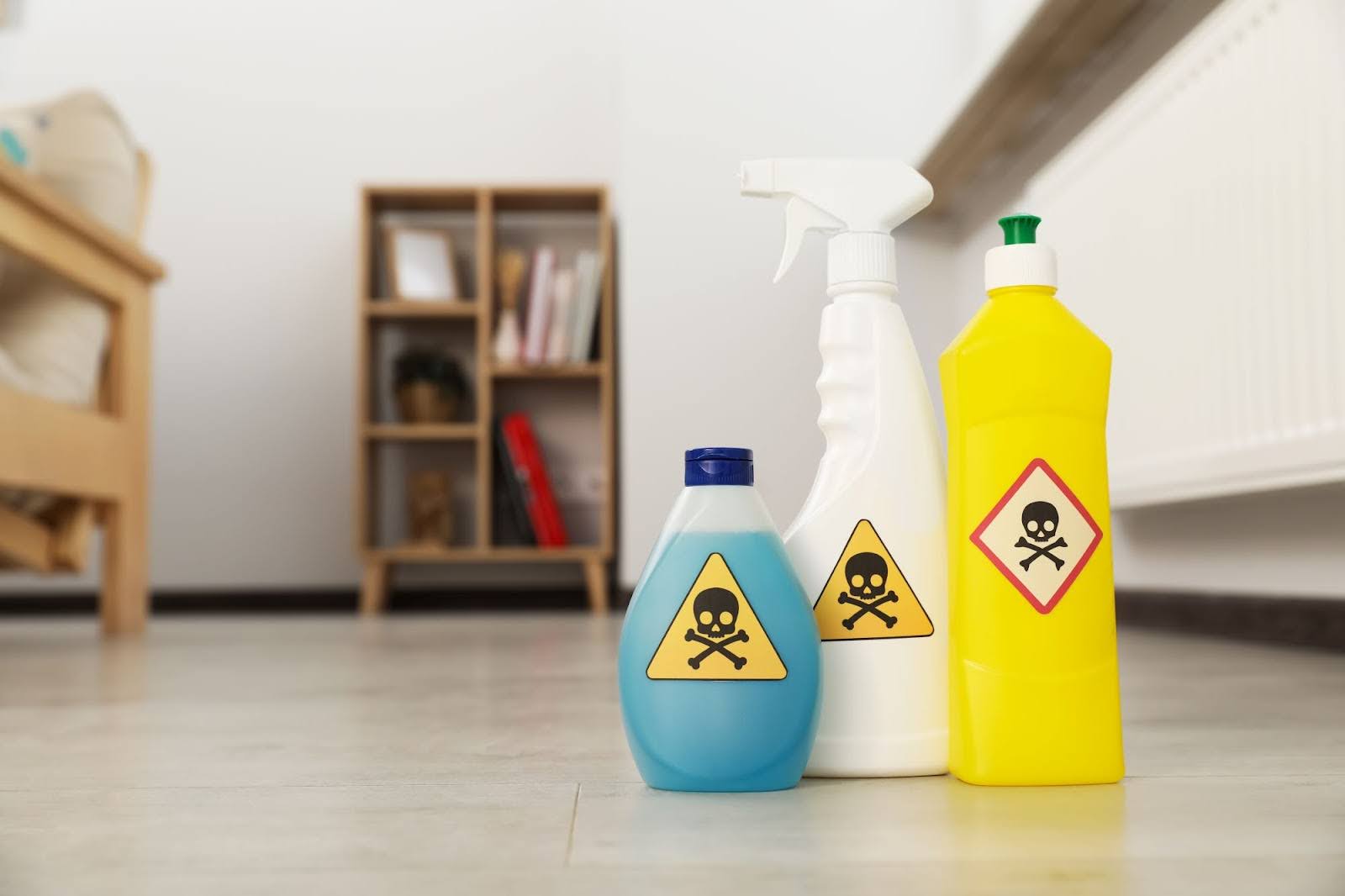Recent Posts
The Toxic Truth: Understanding Harmful Chemicals in Everyday Products
Posted on

Products designed to make our lives more convenient, comfortable, and efficient may come at the cost of our health. Many everyday items we don’t think twice about, like shampoo or cleaners, contain harmful chemicals that can pose significant risks to our bodies and the environment. What should be making our lives easier instead creates effects on our health in both the short and long term. Natural Ginesis is dedicated to transforming everything from cleaning supplies to personal care products to eliminate the toxic substances that lurk in the things we use daily. We help consumers like you make safer, more informed choices by crafting solutions for home, health, and beauty that are free from toxins.
Harmful Chemicals in Everyday Products
Prevalence of Chemicals in Daily-Use Products
Widespread use of synthetic chemicals has become the norm over the last several decades as a way for companies to cut costs and provide products that increase their profit margins. Harmful chemicals in hair products, household cleaners, and personal care items have become nearly impossible to avoid. While many of these substances are used to enhance product performance, prolong shelf life, or improve aesthetics, they often come at a hidden cost: our health.
Despite growing awareness of the dangers of these chemicals, they remain prevalent. This is partly due to the lack of stringent regulations in certain industries and the marketing tactics that downplay the risks associated with chemical exposure. As consumers, it's crucial to be aware of the potential hazards and take steps to reduce our exposure to harmful substances.
What Products Contain Toxic Chemicals?
Let's take a closer look at some of the most common harmful chemicals found in everyday products, where they are typically used, and the risks they pose.
- Phthalates: Phthalates are a group of chemicals used to make plastics more flexible and to help fragrances last longer in personal care products. That lingering scent in your shampoos, lotions, perfumes, and cosmetics is often the result of phthalates. These chemicals are also used in a wide range of plastic items, including food packaging, toys, and vinyl flooring. Phthalates are known endocrine disruptors, meaning they can interfere with the body's hormonal systems. They have been linked to reproductive issues, developmental problems in children, and increased risks of certain cancers.
- Formaldehyde: Formaldehyde is a preservative and disinfectant used to prevent bacterial growth. Some household cleaners and disinfectants contain formaldehyde to kill germs and prolong shelf life. Certain hair straightening treatments, nail polishes, and even some makeup products may contain formaldehyde or formaldehyde-releasing agents. Plywood, particleboard, and certain types of insulation are often treated with formaldehyde to enhance durability. Formaldehyde is a known carcinogen, meaning it may have properties related to causing cancers. It is also a known skin and respiratory irritant, leading to symptoms such as coughing, wheezing, and skin rashes upon exposure.
- Bisphenol A (BPA): Bisphenol A (BPA) is a chemical used in the production of polycarbonate plastics and epoxy resins. Food and beverage containers often use it in the lining, like in canned foods, plastic bottles, and food storage containers. BPA is another endocrine disruptor that can mimic estrogen in the body, leading to hormonal imbalances. Long-term exposure to BPA has been linked to reproductive health issues, increased risk of cardiovascular disease, and developmental problems in children.
Short- and Long-Term Health Effects of Chemical Exposure
The health effects of exposure to harmful chemicals can vary widely depending on the substance, level of exposure, and the individual's susceptibility. Short-term effects are those that occur within seconds or minutes of use and go away after discontinuing the product. Chemicals like formaldehyde and phthalates can cause immediate skin reactions, including redness, itching, and rashes. Inhalation of fumes from products containing certain chemicals such as formaldehyde can lead to coughing, wheezing, and shortness of breath. Exposure to strong chemical odors from cleaning products and personal care items can cause headaches, dizziness, and nausea.
There are also potential long-term effects when chemicals are present in everyday products. Prolonged exposure to carcinogenic substances like formaldehyde can increase the risk of developing various cancers. Endocrine disruptors like phthalates and BPA can interfere with hormone function, leading to reproductive issues such as infertility, developmental problems in fetuses, and early puberty in children. Long-term exposure to some chemicals, such as heavy metals found in some cosmetics and cleaning products, can lead to neurological issues, including memory loss and cognitive decline.
Why the Regulatory Landscape Doesn’t Prohibit Toxic Products
The regulation of chemicals in consumer products varies significantly by country and industry. In the United States, the Environmental Protection Agency (EPA) and the Food and Drug Administration (FDA) are responsible for regulating chemicals in products, but their scope is limited. There are numerous loopholes and gaps in the regulations that large manufacturers can take advantage of. Many chemicals are approved for use in products with minimal testing for long-term health effects. This means that potentially harmful substances can be used in consumer products without comprehensive safety data. In the U.S., manufacturers are not always required to disclose all ingredients on product labels, particularly in the case of "fragrance" or "trade secrets." This makes it difficult for consumers to identify potentially harmful chemicals since the composition of that scent isn’t actually identified. Harmful chemicals in cleaning products, beauty supplies, and pesticides can slip through the loopholes even when the product is marketed in a way that makes it appear natural.
The EU has stricter regulations on chemicals in consumer products, banning or restricting the use of many substances that are still allowed in the U.S. The EU’s REACH (Registration, Evaluation, Authorization, and Restriction of Chemicals) regulation is one of the most comprehensive chemical safety laws in the world. Countries like Canada and Australia also have more stringent regulations compared to the U.S., with specific bans on certain chemicals and more rigorous safety testing requirements.
Natural and Non-Toxic Product Options From Natural Ginesis
Given the risks associated with chemical exposure, it’s no surprise that more people are turning to natural and non-toxic alternatives. Natural Ginesis offers a range of products designed to protect your health and the environment without sacrificing effectiveness.
- Kleen Green™: Kleen Green is a unique, enzyme-based cleaner that is free from harsh chemicals like formaldehyde and phthalates. It effectively tackles dirt, grime, and pests without posing a risk to your health or the environment. Kleen Green is safe for use around children and is one of our many pet-safe products, making it an ideal choice for households looking to reduce their chemical footprint.
- Natural Shampoo and Body Wash: Our natural shampoo and body wash are formulated without harmful chemicals, providing gentle cleansing that is safe for the whole family. These products are free from sulfates, parabens, and synthetic fragrances, ensuring that you avoid exposure to potentially harmful substances while caring for your skin and hair.
- Natural Pesticides and Insect Repellants: Natural Ginesis offers a line of natural insect repellents and pesticides. By using specialized enzymes and essential oils, our products repel pests naturally and stop insects in their tracks without affecting humans or pets. Having a safer alternative to traditional chemical-based repellents puts your mind at ease when caring for your family.
One of the most powerful tools consumers have is the ability to make informed choices. Be on the lookout for harmful chemicals like phthalates, formaldehyde, and BPA. Choose products that disclose all ingredients and provide clear information about their sourcing and safety. Whenever possible, opt for natural products that are free from synthetic chemicals. Natural Ginesis is here to provide safe, effective alternatives you can rely on.
Get Real With Kleen Green
The prevalence of harmful chemicals in everyday products is a concerning reality, but by educating ourselves and making informed choices, we can reduce our exposure and protect our health. Our range of natural, non-toxic products not only safeguard your health but also contribute to a healthier environment. Remember, the power to make safer choices is in your hands. Your health, your family’s well-being, and the environment will all benefit from your proactive approach. Choose Natural Ginesis and go all natural!
 Loading... Please wait...
Loading... Please wait...





 South Africa
South Africa